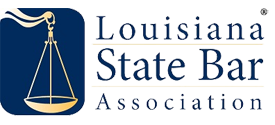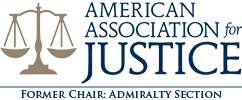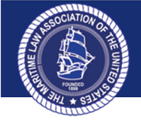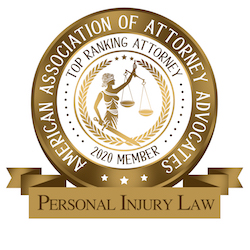First, you must have suffered an injury to your person or property. Second, you should consider whether your personal injury was the result of someone else’s fault. It is not always necessary to have a physical injury to bring a personal injury lawsuit. Personal injury claims are often based on a variety of non-physical losses and harms. In the case of an assault, for example, you do not need to show that a person’s action caused you actual physical harm, but only that you expected some harm to come to you. You also may have a case if someone has attacked your reputation, invaded your privacy, or inflicted emotional distress upon you. All these fall under the category of personal injury claims and you are entitled for a personal injury lawsuit.
Every state has certain time limits, called “statutes of limitations,” which govern the amount of time you have to file a personal injury lawsuit. In some states, you may have as little as one year to file a lawsuit arising out of an automobile accident. If you miss the deadline for filing your case, your injury claims can be dismissed. Consequently, it is important to talk with a personal injury lawyer as soon as you receive or discover any kind of personal injury so that you can discuss the injury lawsuit, only then can he help you the most.
Personal injury actions require, by their very nature, that someone be injured. The requisite injury can either by physical or, in some cases, emotional. The general goal of personal injury actions is to place the blame for the injury on the party who caused it and to require them to compensate the injured for the losses sustained.
Not every injured plaintiff is entitled to recover damages for the injury he or she sustains. Besides an injury, the plaintiff must establish, through evidence, that the defendant is legally liable for his or her injuries. This requires proof of causation both in terms of actual, factual causation and proximate, or legal causation. Whether legal causation is established depends on the facts and circumstances of the particular matter in question. The defendant can be held liable as a result of either the actions that are taken, or the actions that are not taken.
Some personal injury actions revolve around legal causation derived from a concept of intentional conduct, whereby it is generally held that if one intentionally harms another, or knows that the conduct which is engaged in causes a substantial likelihood that harm will result, liability for the resulting harm will in fact attach. Other personal injury actions have as their legal causation a looser concept of fault called negligence. Under a negligence theory, in comparison, one is liable for the results of actions, or inaction, where an ordinary person in the same position should have foreseen that the conduct would create an unreasonable risk of harm to others. Still other types of personal injury actions are based on strict liability, a no-fault system where liability may attach regardless of the fault of the various parties, including the plaintiff.
In some situations, the defendant’s conduct, while questionable, does not rise to a level that entitles the plaintiff to a recovery. For example, if a plaintiff knowingly and willfully chooses to encounter a known hazard, the law holds that he or she has “assumed the risk of injury” and therefore the defendant is not liable. This theory applies for instance in a case where the plaintiff walks on an obvious build up of snow and ice caused by the defendant property owner’s failure to shovel his sidewalk, falls and breaks her hip, and is unable to recover for her injuries because she knew of the hazardous condition and willingly chose to encounter it. Plaintiffs are denied recovery in other cases if their subjective belief about a situation does not match an objective “reasonable person” standard. For instance, where the defendant approaches the plaintiff and states “I might poke you in the eye if you wear that red sweater again,” it is likely that no actionable assault occurred due to the fact that there was no immediate threat of harm that caused reasonable apprehension on the part of the plaintiff.
-
- DO seek medical attention before doing anything else.
- DO summon the police, in appropriate cases.
- DO cooperate with all law enforcement and emergency personnel who respond to the scene.
- DO get the license plate numbers of all other vehicles involved in car accidents and the drivers’ names, addresses, telephone numbers, and insurance information.
- DO get the name and address of the animal’s owner and any license information if you were injured by an animal bite or attack.
- DO write down the names, addresses, and phone numbers of all potential witnesses to an accident.
- DO contact your health, homeowner’s, and/or automobile insurance companies, as appropriate.
- DO take photographs of all as soon as possible after the accident.
-
-
- DON’T move your vehicle after an automobile accident unless necessary for safety or required by law.
- DON’T subject yourself to further injury by standing in an area of traffic or other safety hazards.
- DON’T leave the scene of an accident until the police tell you it is okay to do so.
- DON’T throw away any potential evidence in the case.
- DON’T remain in a burning building while calling for help. Leave the area of danger first, and then call from a safe place.
- DON’T engage in discussions as to fault with anyone, and make sure you Don’t apologize for anything.
- DON’T agree to settlement terms without contacting your attorney.
-
The critical issue in many personal injury cases is just how a “reasonable person” was expected to act in the particular situation that caused the injury. A person is negligent when he or she fails to act like the standard “ordinary reasonable person.” The determination of whether a given person has met his/her “ordinary reasonable person” standard is often a matter that is resolved by a jury after presentation of evidence and argument at trial.
Negligence can cause all kinds of personal injuries, it also has many categories depending on the cause of the injuries. Negligence can be Medical or Nursing home abuse, or it can be caused when on board a vessel like a railway, cruise ship or airplane or any other automobile.
Yes; some persons or companies may be held “strictly liable” for certain activities that harm others, even if they have not acted negligently or with wrongful intent. Under this theory, a person injured by a defective or unexpectedly dangerous product, for instance, may recover compensation from the maker or seller of the product without showing that the manufacturer or seller was actually negligent. Also, persons or companies engaged in using explosives, storing dangerous substances, or keeping dangerous animals can be strictly liable for harm caused to others as a result of such activities. The theory behind imposing strict liability on those conducting such activities is that these activities pose an undue risk of harm to members of the community. Thus, anyone who conducts such activity does so at his own risk and is liable when something goes wrong and someone is harmed. The people who create certain risks are thus made accountable.
Not in the traditional sense of the word. Defendants in civil actions for personal injury do not receive jail terms or criminal fines as punishment. Those are criminal sentences, and personal injury cases are civil actions. However, in some cases, juries and courts can award what are called “punitive damages,” which are designed to punish defendants who have behaved recklessly or intentionally against the public’s interest. The goal in ordering the payment of punitive damages is to discourage such defendants from engaging in the same kind of harmful behavior in the future.
Usually, a person who is liable for an injury and therefore his or her liability insurance company must pay an injured person for: medical care and related expenses; income lost because of the accident; permanent physical disability or disfigurement; loss of family, social and educational experiences; emotional damages, such as stress, embarrassment, depression or strains on family relationships; and damaged property. You will be awarded “damages,” which is money intended to restore you to the position you were in before your injury. This money is not considered income and is not taxable as income by the federal government or the states.
1. Best Jury Verdicts
If a trial becomes necessary, a personal injury lawyer can zealously represent you in court and work toward achieving the best possible jury verdict in your favor.
2. Best Settlements
Personal injury attorneys work hard to reach the best settlements for their clients, as early in the litigation process as possible.
3. Experience With Insurance Companies
Personal injury lawyers are also used to working with insurance companies and will not be confused by their tactics or feel pressured to settle for an unsatisfactory amount.
4. Experience Working With Other Lawyers
An experienced personal injury lawyer can deal most effectively and expediently with opposing counsel.
5. Alternative Dispute Resolution
An experienced personal injury attorney will know whether your dispute may be best resolved through mediation, thereby saving you time, money, and emotional energy.
6. Objectivity
A personal injury attorney can be more objective about your case than you can and will not make a rash decision. Whereas you may be tempted, for instance, to go for a quick payout, your attorney may counsel you that it is in your best interests to wait for a more appropriate offer.
7. Investigative Team
Experienced personal injury attorneys work with a team of investigators who have experience in specialized areas and will skillfully investigate the technical aspects of your case.
8. Red Tape
An experienced personal injury attorney can work through the maze of paperwork necessary to resolve your claim so that you can get on with your life.
9. No Fees If You Don’t Recover
Most personal injury attorneys work for a contingency fee, which means that if you do not win your case, you will pay no attorneys’ fees. You will, however, be responsible for certain expenses not directly related to professional fees, such as the fees doctors charge for reviewing your records or being interviewed.
10. Experience Assessing Claims
Personal injury attorneys are experienced with cases like yours and can tell you at the outset whether it is worth your while to pursue legal action. If you are unlikely to prevail, you will not need to incur the time and expense of preparing for litigation.
The critical issue in many personal injury cases is just how a “reasonable person” was expected to act in the particular situation that caused the injury. A person is negligent when he or she fails to act like the standard “ordinary reasonable person.” The determination of whether a given person has met his/her “ordinary reasonable person” standard is often a matter that is resolved by a jury after presentation of evidence and argument at trial.
Negligence can cause all kinds of personal injuries, it also has many categories depending on the cause of the injuries. Negligence can be Medical or Nursing home abuse, or it can be caused when on board a vessel like a railway, cruise ship or airplane or any other automobile.
Yes; some persons or companies may be held “strictly liable” for certain activities that harm others, even if they have not acted negligently or with wrongful intent. Under this theory, a person injured by a defective or unexpectedly dangerous product, for instance, may recover compensation from the maker or seller of the product without showing that the manufacturer or seller was actually negligent. Also, persons or companies engaged in using explosives, storing dangerous substances, or keeping dangerous animals can be strictly liable for harm caused to others as a result of such activities. The theory behind imposing strict liability on those conducting such activities is that these activities pose an undue risk of harm to members of the community. Thus, anyone who conducts such activity does so at his own risk and is liable when something goes wrong and someone is harmed. The people who create certain risks are thus made accountable.
Not in the traditional sense of the word. Defendants in civil actions for personal injury do not receive jail terms or criminal fines as punishment. Those are criminal sentences, and personal injury cases are civil actions. However, in some cases, juries and courts can award what are called “punitive damages,” which are designed to punish defendants who have behaved recklessly or intentionally against the public’s interest. The goal in ordering the payment of punitive damages is to discourage such defendants from engaging in the same kind of harmful behavior in the future.
Usually, a person who is liable for an injury and therefore his or her liability insurance company must pay an injured person for: medical care and related expenses; income lost because of the accident; permanent physical disability or disfigurement; loss of family, social and educational experiences; emotional damages, such as stress, embarrassment, depression or strains on family relationships; and damaged property. You will be awarded “damages,” which is money intended to restore you to the position you were in before your injury. This money is not considered income, and is not taxable as income by the federal government or the states.
Usually, a person who is liable for an injury and therefore his or her liability insurance company must pay an injured person for: medical care and related expenses; income lost because of the accident; permanent physical disability or disfigurement; loss of family, social and educational experiences; emotional damages, such as stress, embarrassment, depression or strains on family relationships; and damaged property. You will be awarded “damages,” which is money intended to restore you to the position you were in before your injury. This money is not considered income, and is not taxable as income by the federal government or the states.
Usually, a person who is liable for an injury and therefore his or her liability insurance company must pay an injured person for: medical care and related expenses; income lost because of the accident; permanent physical disability or disfigurement; loss of family, social and educational experiences; emotional damages, such as stress, embarrassment, depression or strains on family relationships; and damaged property. You will be awarded “damages,” which is money intended to restore you to the position you were in before your injury. This money is not considered income, and is not taxable as income by the federal government or the states.









